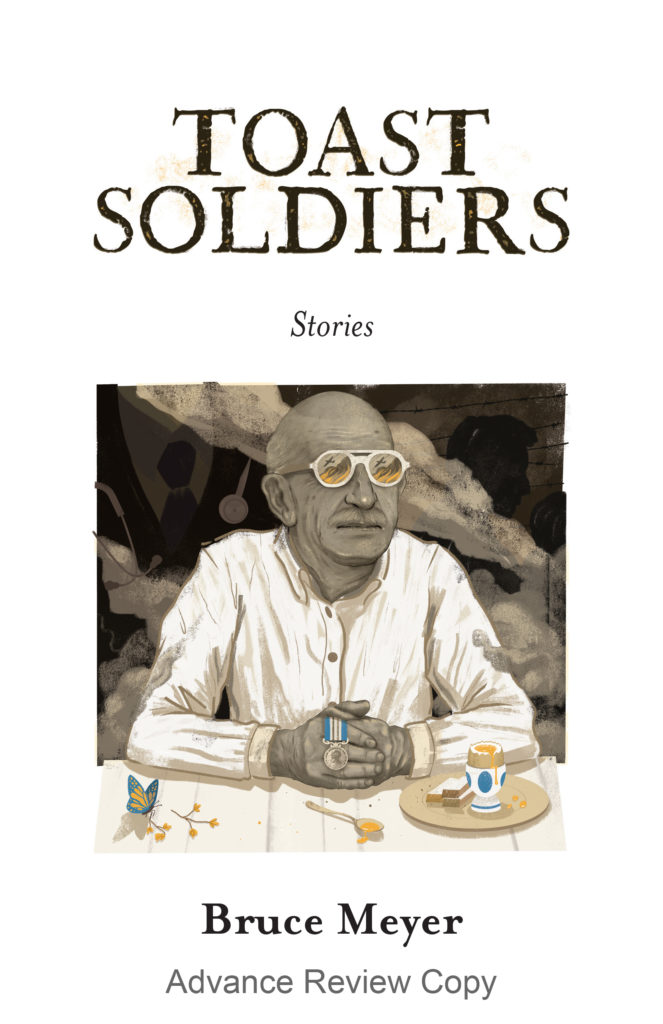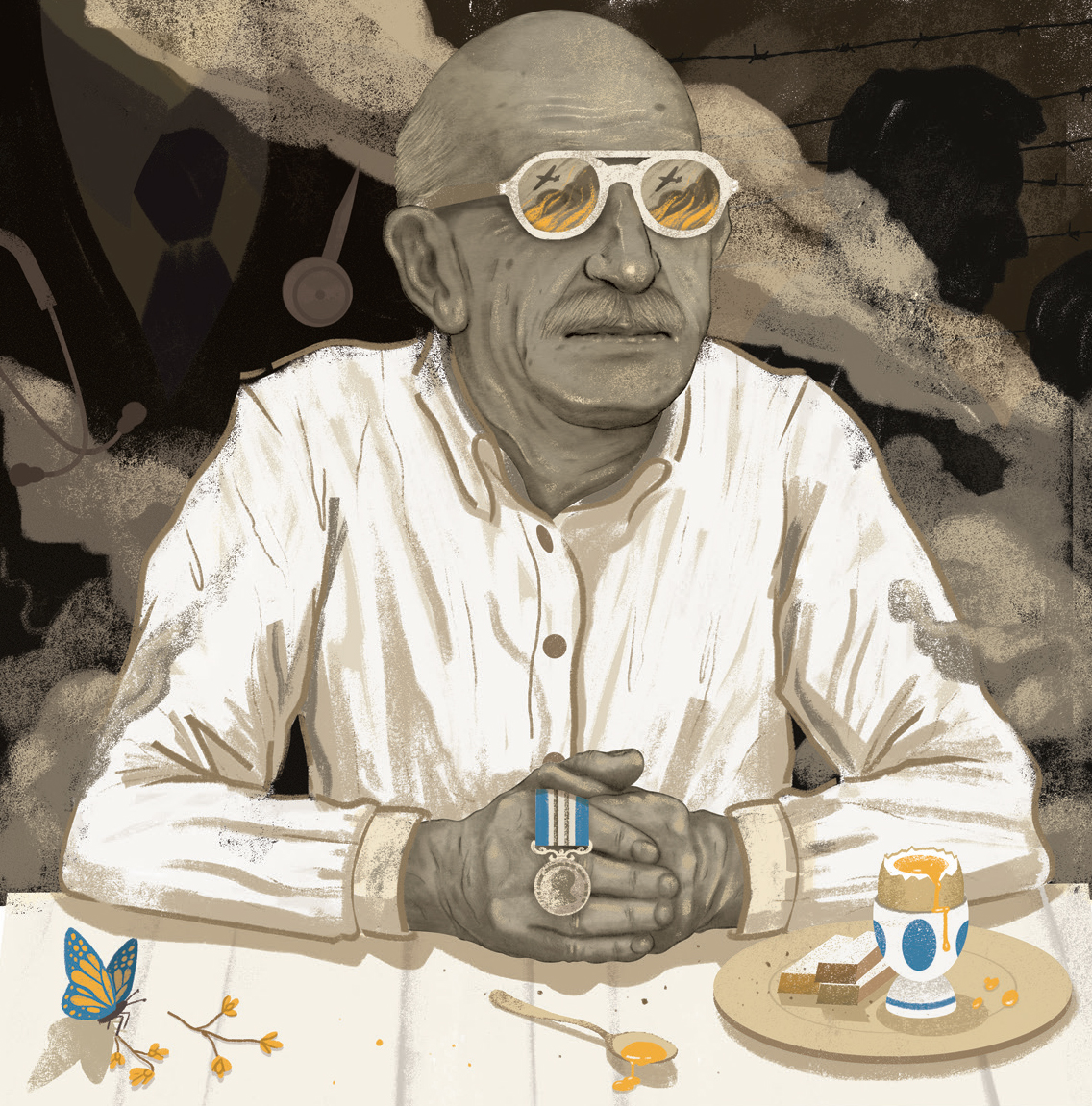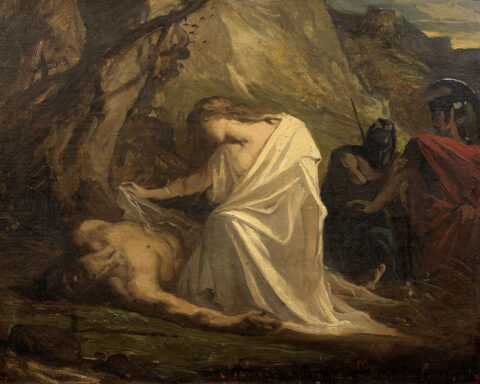
War and its multifaceted aftershocks shape Bruce Meyer’s latest collection of short stories, Toast Soldiers, published by Crowsnest Books. From individual trauma to the collective trauma of a community, the characters in these potent stories grapple with a legacy of violence — and what resilient, flawed, and deeply true characters they are.
In the words of Meyer’s publisher, “The people of Toast Soldiers are not nihilists. They might face a brief and strange life marked by struggle, but they do so with tremendous dignity.”
Indeed, the characters who populate these stories are fully realized, each one alive and breathing on the page. In “The Promised Land,” Toby, a young boy whose community worships Nuclear power, secretly lusts after the authority of old: “Christ could not be touched, though Toby wished he could be touched by Christ and feel the pleasure of the Son of God” (29). In “Macarons,” the narrator’s regal Grandmére, a woman who “spoke in maxims in the manner of Proust” (96) locks herself in a gilded closet of her own creation each day, and raises her male charge as her own darling girl.
Though the narrators in Toast Soldiers often find themselves in harrowing, absurd situations — from lingering WWII animosities dividing a retirement home, to a town enraptured by the awesome power of the nuclear bomb, to a narrator’s elderly father accurely predicting the exact date of his death — the characters themselves always ring brilliantly true to life, balancing out their oft off-kilter realities.
Meyer has a talent for juxtaposing the mundane with the unfathomable: ”One day a boy named Jerry whose father got crushed not long after that in a cave-in, hollered that he had a porcupine trapped on his front lawn” (38). Readers are forced to accept life’s sufferings in a passing glance — whether they originate from foreign power, from one’s own government, from weapons of mass destruction, from old age, or from mere coincidence. In “Sayings,” a son’s desperation to please his father leads to a horrendous accident. Meyer jarrs us with the banal reality of everyday tragedy, even as he makes clear the value of every human life.
Meyer’s prose, surprising and clever, runs from whimsical: “Cheese explains so much about the type of person who ought to be murdered” (113), to downright unsettling: “The noises in the forest had bodies and a body is always hungry” (41). Each story operates from its own world, in which the rules of morality tumble and shift in delightful mystery. The recurring theme of the absurdity inherently found within war is reminiscent of Vonnegut — there can be no higher compliment — but there is no mistaking Meyer’s prose for anything but his own.
At the October launch of Toaster Soldiers, Meyer was joined over a video call by previous students, peers, editors, and fans, to celebrate not only this release, but a lifetime of creative work. It should come at no surprise that an author who can capture characters so deeply, who can understand people at their nuanced core, would be so surrounded by a community of readers who adore him, as a writer and a person.
Marty Gervais, Windsor’s first Poet Laureate, who published Bruce’s first book The Open Room (1989) said it best: “Bruce is a treasure,” and with a smile, “we have to keep buying his books.”




